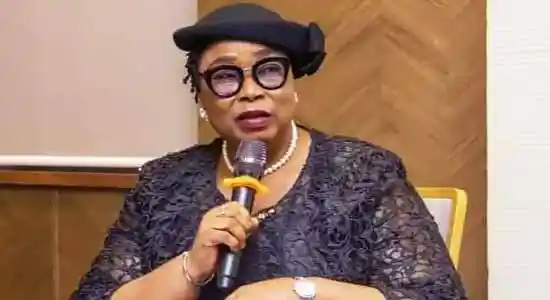The Chairperson of Panel 2 of the Election Petition Tribunal, Justice Flora Azinge, raised concerns on Tuesday over alleged attempts by lawyers to bribe judges within her team, underscoring the persistence of corruption within Nigeria’s judicial system.
This is reportedly the second instance in recent times where a judge has voiced concerns about lawyers attempting to compromise the integrity of the legal process by offering bribes to the bench.
Justice Azinge openly addressed the issue in court, stating that “money is flying,” and rumors suggest that a staff member allegedly accepted a substantial bribe of N10 million. However, details regarding the specific individual involved remain undisclosed.
Read Also Tinubu Ministerial List and Portfolios
The alarming allegations come at a time when Nigeria’s legal community grapples with the erosion of public trust in the pursuit of justice due to persistent allegations of corruption. Notably, the specter of judicial corruption has cast a shadow over the country’s judicial landscape, and these allegations further accentuate the intersection of power, ethics, and accountability within the Nigerian legal system.
Legal experts and scholars emphasize that corruption within the judiciary poses a significant threat to the foundational principles upon which justice is built. While acknowledging that not all lawyers engage in unethical practices, the prevalence of such incidents threatens to undermine the credibility of the justice system and raises questions about the rule of law in the country.
Read Also Breaking: Tinubu releases ministerial portfolios, assigns FCT to Wike, Labour to Lalong
As the legal fraternity confronts this challenging issue, the need for comprehensive reforms becomes increasingly evident. Transparency, accountability, and commitment to upholding the rule of law are seen as critical components in dismantling the culture of corruption that pervades the legal landscape.
Stakeholders from various sectors, including legal professionals, civil society organizations, academia, and governmental bodies, are urged to collaborate in the fight against judicial corruption. Building mechanisms for reporting and addressing allegations of corruption, ensuring judicial independence, and enhancing ethical training for lawyers are identified as pivotal steps to create a more trustworthy legal ecosystem.
Read Also Breaking: NNPCL secures $3b emergency loan to strengthen the naira
The Chairman of the Kano State Nigeria Bar Association, S. S. Gezawa, responded to the allegations, acknowledging them as serious but urging for concrete evidence before any action is taken. He stressed that if any lawyer is found to have engaged in wrongdoing, formal complaints can be channeled through the appropriate legal channels and agencies for investigation and potential prosecution.
In light of these developments, Nigeria finds itself at a crossroads, where the commitment to justice, integrity, and accountability must prevail over corruption. The ongoing allegations emphasize the urgency of the legal community and society at large to address the root causes of unethical behavior and usher in a new era of transparency, credibility, and fairness within the Nigerian judicial system.







